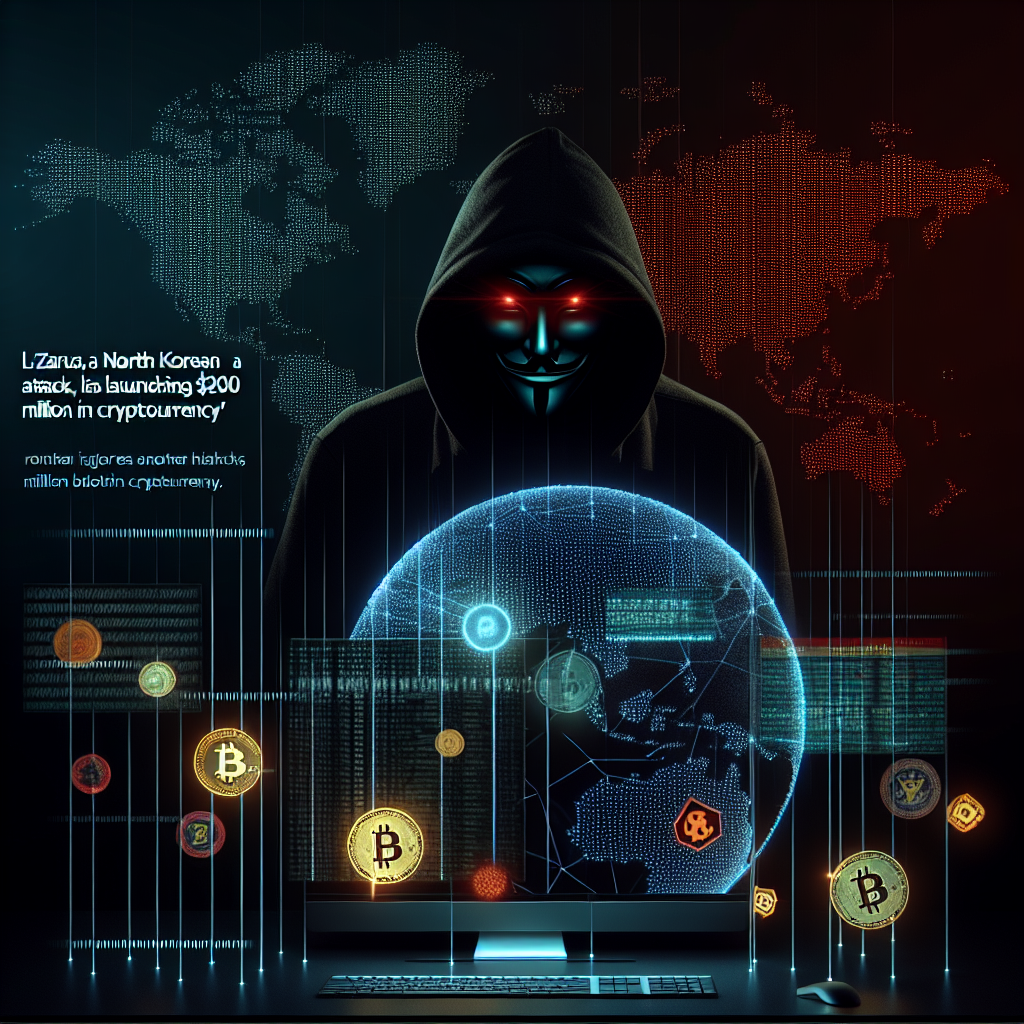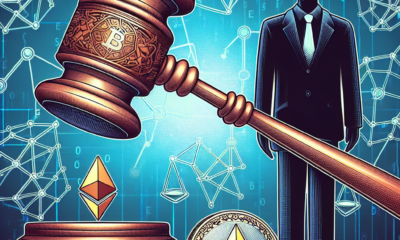Altcoins
Lazarus, a North Korean Collective, Launches Another Attack, Laundering $200 Million in Cryptocurrency

**North Korean Hackers Embark on a $200 Million Cryptocurrency Laundering Spree**
In recent developments that have sent ripples through the global financial and cybersecurity domains, North Korean hackers, identified as part of the infamous Lazarus Group, have been implicated in a sophisticated cryptocurrency laundering scheme. The collective is reported to have laundered approximately $200 million in stolen bitcoin, leveraging advanced techniques like coin mixers and peer-to-peer exchanges. This revelation marks a concerning trend in the digital currency landscape, where the deployment of such sophisticated methods for illicit purposes poses significant challenges for regulatory and security frameworks internationally.
The Lazarus Group, which is believed to be operating under the auspices of the North Korean government, has a notorious history of cyber heists and sophisticated exploitation attacks on blockchain technology. Their methods involve obfuscating the origins of illicitly obtained funds through the use of Bitcoin-based mixers like ChipMixer, and Ethereum mixer Tornado Cash, among others. These platforms have been instrumental in their ability to launder money from over 25 different attacks across multiple blockchains discreetly.
This technique’s sophistication lies in its ability to anonymize transactions, making it increasingly difficult for authorities to trace the origins of stolen funds. The reliance on such services underscores a larger, more complex problem within the blockchain ecosystem — its potential misuse for nefarious purposes. Furthermore, the involvement of cryptocurrencies like Ethereum and the utilization of currency mixers highlight critical vulnerabilities in the design and regulation of digital currencies and decentralized platforms.
The impact of these activities extends beyond the immediate financial losses incurred. The use of platforms like Railgun (RAIL) by groups such as Lazarus for illegal activities poses a substantial risk to the reputation and value of these digital assets and services. This is of particular concern to investors and participants in the cryptocurrency market, who may face significant uncertainties and potential devaluation of their holdings due to such criminal associations.
In an assessment by TRM Labs, it was discovered that in 2023 alone, North Korean-affiliated hackers have appropriated cryptocurrency valued at a minimum of $600 million. This figure could escalate if additional hacks from the preceding year are substantiated, potentially topping $700 million. The Democratic People’s Republic of Korea (DPRK) has systematically positioned itself as a dominant player in the cryptocurrency theft arena, accounting for roughly one-third of the total amounts pilfered in recent years. The nation’s hackers are reported to be ten times more destructive than their counterparts, with pilfered cryptocurrency nearing the $3 billion mark since 2017.
This revelation not only underscores the DPRK’s escalating involvement in global cybercrime but also highlights the persistent vulnerabilities within the cryptocurrency industry. Despite being heralded for its security features, the blockchain technology underpinning these digital assets remains susceptible to sophisticated cyber threats. The persistent advances in cyber espionage and theft by entities like the Lazarus Group exacerbate the challenge of safeguarding digital assets, necessitating a reevaluation of current security measures and regulatory frameworks.
As the landscape of digital currency continues to evolve, the incidents involving the Lazarus Group serve as a stark reminder of the ongoing battle between advancing technology and the imperative to maintain robust security and regulatory oversight. The implications of such activities are far-reaching, affecting not only the immediate victims of these thefts but also the broader perception and stability of the cryptocurrency market. In response, there is an urgent need for concerted efforts among international law enforcement, regulatory bodies, and the cryptocurrency community to address these vulnerabilities and deter future attempts at exploitation.
The fight against cryptocurrency laundering and theft is a complex endeavor that requires a multifaceted approach, comprising advanced technological solutions, international cooperation, and stringent regulatory measures. As the digital currency ecosystem continues to mature, the resilience and security of blockchain technology will be paramount in ensuring its sustainability and integrity in the face of evolving cyber threats.
-

 Press Releases11 months ago
Press Releases11 months agoGaming Technologies of the New Time!
-

 Altcoins3 months ago
Altcoins3 months agoBitcoin Declines Below $80K: deVere CEO Nigel Green Remains Bullish on Long-Term Outlook Following Strategic U.S. Bitcoin Reserve Announcement
-

 Bitcoin9 months ago
Bitcoin9 months agoBitcoin Surges Past $64K as SEI and POPCAT Lead Daily Crypto Gains on September 25
-

 Altcoins3 months ago
Altcoins3 months agoCalls for Enhanced Discussion on Bitcoin as Brazil’s Reserve Asset: A Move Towards ‘Internet’s Gold’
-

 Press Releases1 year ago
Press Releases1 year agoEvo Exchange: Redefining the Decentralized Exchange Landscape
-

 Press Releases10 months ago
Press Releases10 months agoCODE, a Newly Born Project Brings Decentralization Back to the Main Menu
-

 Bitcoin1 year ago
Bitcoin1 year agoHouse’s McHenry Charges SEC Chief Gensler With Misleading Congress Regarding Ethereum (ETH)
-

 Press Releases1 year ago
Press Releases1 year agoGolden Cobra: Pioneering Real Utility and Sustainability in the Meme Coin Space




